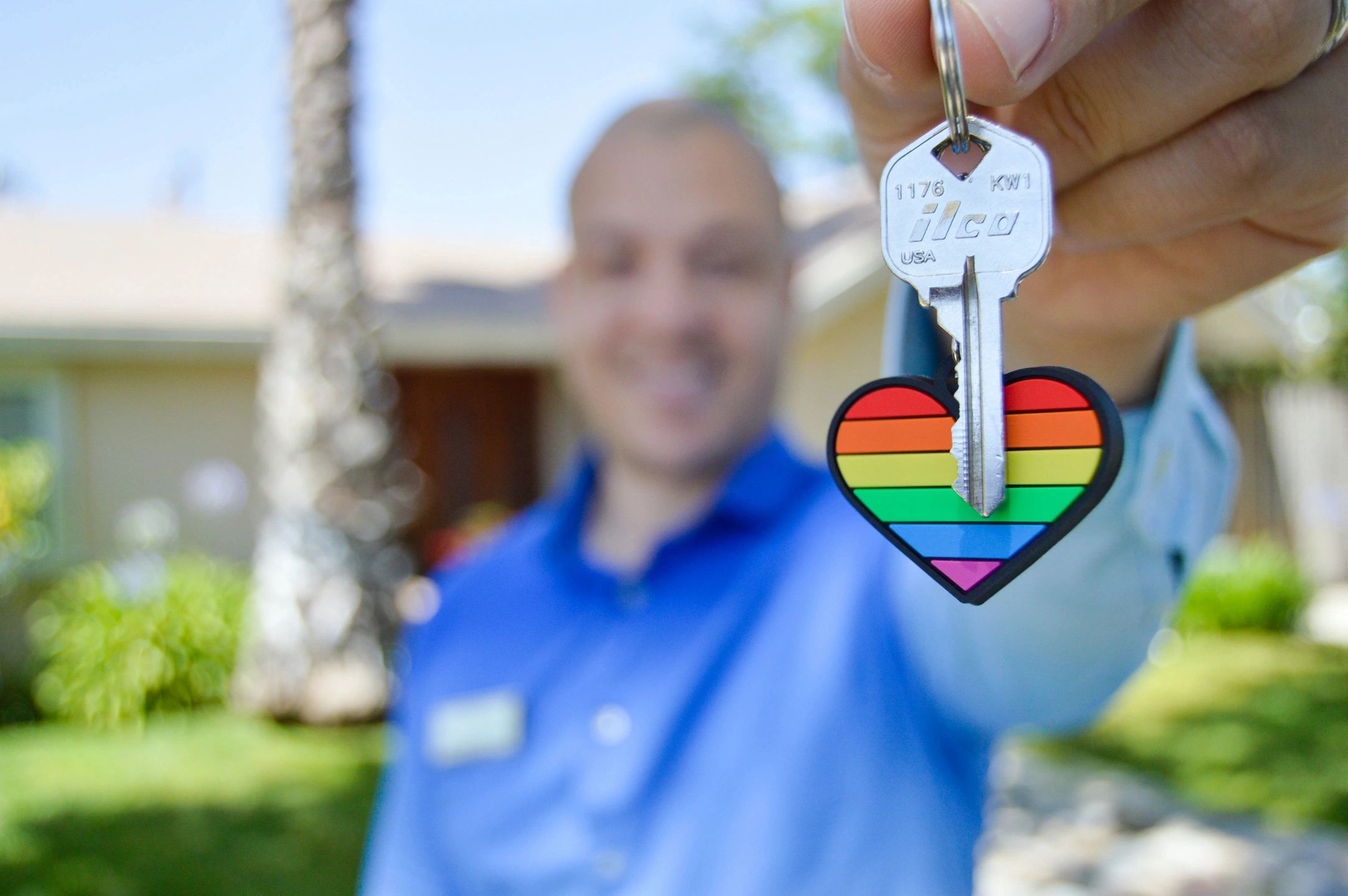As you’ve surely heard by now, we’re in the midst of great economic shifts. The collapse of the crypto market, the roller coaster that is the stock market, rising interest rates, dropping home values, and inflation through the roof—it’s enough to make you sick. And it can make you sick, unless you take the actions we’re sharing here.
During every economic shift, whether it’s the Great Depression, the last Great Recession, or even during the pandemic, some people get rich, while others lose everything. Whether your family got rich, lost it all, or just hung on by their toes, you can learn from what happened and create the exact future reality you want for yourself and the people you love.
But to do that, you need to get into action now. In service to that, here are 3 steps you can take right away to change your family’s future and ensure you have the stability you need to sail through the economic shifts in the best way possible.
On that note, whether you’ll be passing on wealth or inheriting it, it’s crucial to have a plan in place to reduce the massive loss that will occur if you wait to start the estate planning conversation. Whether you have a little or a lot, not getting clear on what you do have (or will receive) can cause major upsets that can cost you far more than just money.
01 – Get into conversation and connection
The first step to ensure your family benefits from the current and coming economic shifts, regardless of what happens, is to get into conversation and connection with the people you depend on, the people who depend on you, or who you will depend on, if something happens to you or your assets.
With the economic realities that are upon us, we can no longer go it alone, expecting everything to just work out because the stock market is on the rise and there’s plenty of savings cushion in the bank. Instead, this is the time to bring your family together and talk about what there is, where it is, and how it’s being managed (and will be managed) in the event there is a black swan event, such as the pandemic or a major stock-market crash.
If you’re afraid to have these conversations because you think your family might not do well with knowing what you have, because you think they can’t handle knowing what you have (or don’t have), or because there has been upset in the past when talking about family financial resources, that’s a sign that it’s more important than ever to get into conversation and connection as soon as possible.
If you’ve attempted to have these conversations with your loved ones in the past and it hasn’t gone well, reach out and ask for our help. We’ve got processes and systems in place to support you to have these delicate conversations with your parents, kids, or siblings, with far more ease than you trying to do everything all on your own.
If you don’t have living parents, kids, siblings, or a spouse, it’s even more important that you start these conversations. You can begin by identifying who you need to have these conversations with. We work with many single people and unmarried couples to help them navigate and talk about what can be a confusing and uncertain future, and we can help you, too.
If talking about assets and the allocation of family resources is easy for your family, that’s great—it’s time to take it to the next level by following the rest of the steps outlined here. Once you get into conversation with the right people based on your family dynamics, the next step is to get comfortable enough to “open the kimono.” This involves creating an inventory that lists all of the assets you own, where they’re located, and how the people you love can find them in the event you become unable to share those details yourself.
02 – Open the kimono: Create your “Family Wealth Inventory”
Whether you’ve created a formal set of estate planning documents already or not, it’s time to create (or update) an inventory of your assets. In our experience, most estate plans don’t do a very good job of keeping assets organized. When a loved one becomes incapacitated or dies, this is actually one of the biggest sources of expense, heartache, and pain—no one knows what there is, where it is, or how to find it.
One of the greatest gifts you can give the people you love is what we call a “Family Wealth Inventory,” and it’s something we create for all of our clients as part of their estate plan. We will not only create this inventory for you, but we have systems to keep it consistently updated year in and year out, as your life, assets, and the law change over time.
During a major economic shift, creating, updating, and revising your Family Wealth Inventory is critical, and doing that with the people you love is your number-one mission. As we see it, family wealth isn’t just about your financial wealth, it’s about your whole family wealth, including your intellectual, spiritual, and human assets. In fact, these non-financial, intangible assets are usually what we all care about most, and yet they’re so often overlooked in estate planning.
One of the best ways to maximize your family’s intellectual, spiritual, and human assets is for your loved ones to get into relationship around your family’s financial resources. Begin by creating (or updating) your Family Wealth Inventory, and share it with your loved ones, so you can discuss how to best allocate (or re-allocate) those resources. Having this conversation can help ensure your family’s intellectual, spiritual, and human wealth continues to grow, even as we move through these uncertain economic times.
If you don’t have a Family Wealth Inventory yet, contact us and ask about our Personal Resource Map. This free, online resource-mapping tool will help you start creating your asset inventory right now, without the need for a lawyer. From there, meet with us for a Family Wealth Planning Session. During this meeting, we’ll look at what you have, where it is, and who will take care of it if you can’t, so we can create a plan that’s right for you and your family, whether we have a recession, depression, inflation, or whatever else may come our way.
03 – Consider reallocating your resources
Once you’ve created your Family Wealth Inventory, which allows you to see all of your assets in one place and consider the needs of your family, regardless of the economic climate, you may decide to reallocate your resources. For example, now might be the time to invest in multigenerational housing that will allow you and your kids to live together for many years or allow you to care for aging parents, while still maintaining privacy. Or you may decide that it’s time to create that homestead you’ve been talking about building, or launch that business you’ve been wanting to start. And it could be that now is the time to do all of that with the people you love.
When we meet with you for a Family Wealth Planning Session, we’ll help you look at whether your resources are being held in ways that will support you to reach your short and long-term goals. Then, we can either help you reallocate your resources to achieve those goals, or refer you to professionals we trust to help you reallocate. The worst thing you can do right now is not look at your family resources because you’re afraid to see what’s there or you want to keep your head buried in the sand.
Times are changing, and the best time to look at what you have, so you can consider the future you want to create and intentionally allocate (or re-allocate) your resources is right now. Those who do so will thrive. Those who don’t will fall behind and wish they had done something different once it’s too late.
04 – Update your plan
Once you look at what you have, where it is, and how you want it allocated, the next issue to decide on is who would take care of it all if you cannot. Leaving the management of your affairs to chance or to out-of-date estate planning documents is the worst thing you can do for yourself and those you love.
In an upcoming article, we’ll cover the Great Wealth Transfer that’s happening, detailing how between $30 and $80 trillion of wealth will be transferred between the generations over the next few decades, and how you can best prepare for that transfer.
In the meantime, start by updating the estate planning you already have in place to handle your assets in the event of your incapacity or death. If you don’t have any plan at all, the state has one for you, and it almost certainly isn’t what you would want to have happen. If you do have an estate plan in place, it’s likely out of date, or possibly wasn’t even created properly to begin with.
No matter what you have—or don’t have—we can help.
Secure your wealth, your legacy, and your family’s future
Regardless of how much, or how little, wealth you own, now is the time to look at what you have, talk to your parents about what they have, and talk to your kids about what they’ll need to take care of you. If you don’t have living parents or kids, talk to your siblings or close friends. As your Personal Family Lawyer, our Life & Legacy Planning Process is designed to guide you to look at all of these things with ease and talk to the right people based on your family dynamics and assets, as affordably and effectively as possible.
Every plan we create has built-in support for your life and legacy, which can greatly facilitate your ability to make wise legal and financial decisions throughout your lifetime and beyond. That’s why we call our services Life and Legacy Planning, not just estate planning.
By working with us, you can rest assured that no matter what happens with the ongoing and future economic shifts, your family wealth will offer the maximum benefit for your loved ones. Schedule a Family Wealth Planning Session today to start having these critical conversations to ensure you and your family will thrive through the recession and any other calamity that may occur.
This article is a service of Brittany Cohen, Personal Family Lawyer. We don’t just draft documents; we ensure you make informed and empowered decisions about life and death, for yourself and the people you love. That’s why we offer a Family Wealth Planning Session, during which you’ll get more financially organized than you’ve ever been before and make all the best choices for the people you love. You can begin by calling our office today to schedule a Family Wealth Planning Session and mention this article to find out how to get this $750 session at no charge
[email protected]
858-427-0539



